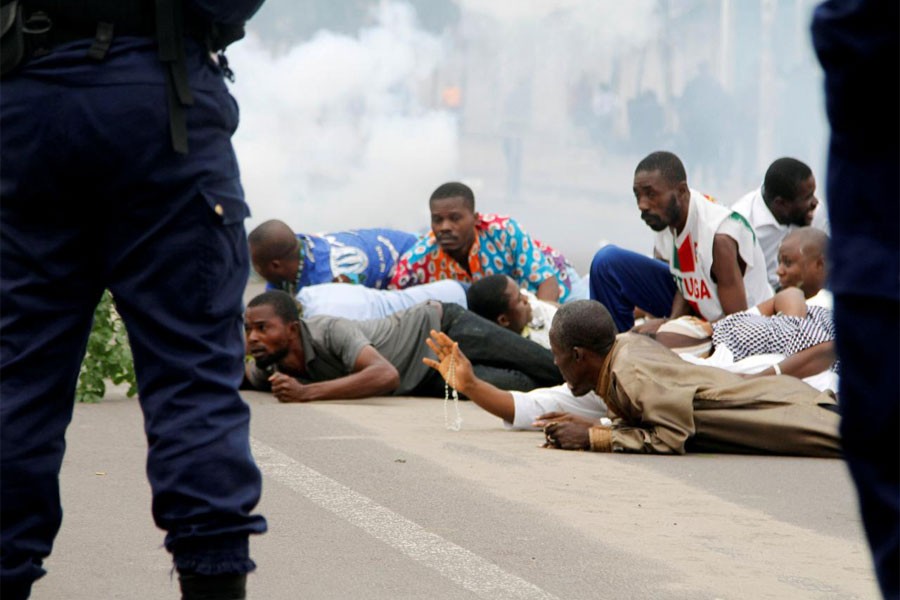At least five people have been killed in the Democratic Republic of Congo during demonstrations on Sunday across the country against delayed elections and the continuation of Joseph Kabila’s presidency.
A UN peacekeeping mission in the country said Congolese security fired tear gas to disperse the banned protest organised by the Catholic church.
Kabila’s refusal to step down at the end of his mandate in December 2016 has triggered a series of street protests in which scores have been killed in Kinshasa, according to a Reuters report.
It has also emboldened armed rebel groups in different parts of the country.
Police and paramilitary troops fire volleys of tear gas and shoot into the air on Sunday outside the Notre Dame cathedral in the capital Kinshasa, said a witness.
Florence Marchal, spokesman for the UN mission (MONUSCO), also said 33 people were wounded and that 49 arrests had been made across the country.
As well as Kinshasa, protests erupted in the central Congolese diamond-mining town of Mbuji-Mayi.
The instability has stoked fears that the vast, mineral-rich Democratic Republic of Congo could slide back into the wars that killed millions in the 1990s, mostly from hunger and disease.
“I marched today for a simple reason: I want to bring up my children in a country that respects human rights,” protester Pascal Kabeya, a 40-year-old market trader, told Reuters where a few hundred had gathered in a suburb of Kinshasa.
“Kabila has done his two terms. He should leave now and give a chance to someone else”.
“WE WILL USE FORCE”
The chief of police for Kinshasa city General Sylvano Kasongo Kitenge had warned in a statement overnight that the protest was banned and that “no attempt to disturb public order will be tolerated anywhere in Kinshasa.”
Kasongo, surrounded by several armed police, visited the road leading to Notre Dame where a protest was happening, ordering everyone to go home, a witness saw.
“Mass is over, the priests should now go home, and everybody else should go home. If you refuse, we will use force and shoot tear gas, let that be very clear,” he told them.
The violence echoed that of New Year’s Eve, when Congolese forces killed at least seven people in the capital during a protest by Catholic activists.
Under a deal mediated between the church and Kabila’s opponents, the president was to step down at the end of last year, paving the way for an election early this year. But he reneged on the deal and the poll has been repeatedly delayed -- it is currently loosely scheduled for the end of 2018.
Diplomats, including the United States, British and Swiss embassies had all put out statements encouraging the Congolese to march to pressure Kabila to respect the deal.
The Roman Catholic Church has emerged as a harness for opposition to Kabila’s efforts to stay in power with no mandate, while his political opposition remains feeble and fragmented.
Kabila, who has been president his father was killed in office in 2001, blames the electoral delays on the logistics of voter registration.


